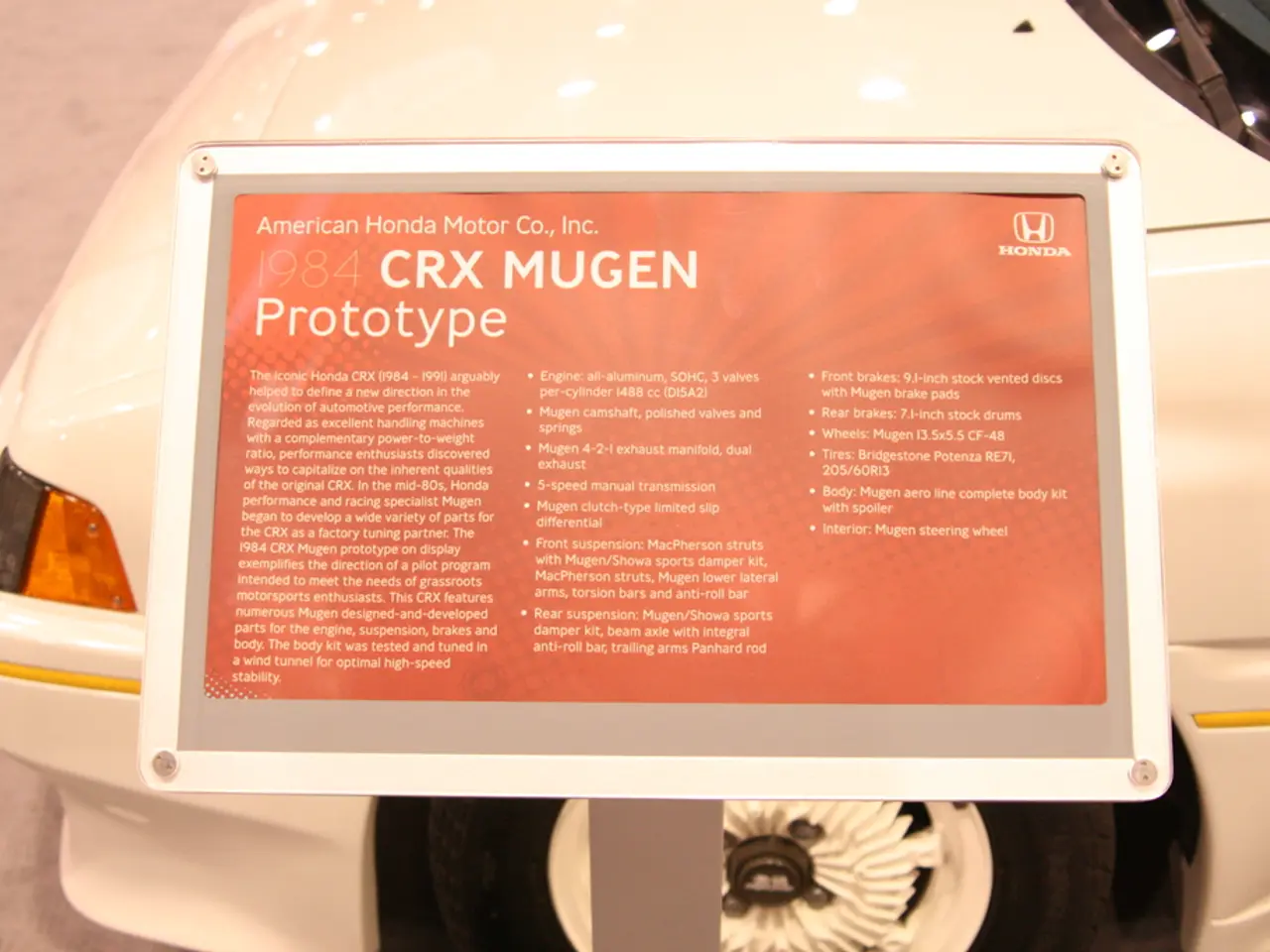Automaker Ford Announces Plan to Deliver Fully Modular Electric Vehicle Skateboards for Customization
Ford's Universal EV Platform and Production System: Revolutionizing Electric Vehicle Manufacturing
Ford Motor Company is making significant strides in the electric vehicle (EV) industry with its innovative Universal EV Platform and Universal EV Production System. This integrated approach to EV design and manufacturing is part of a $5 billion investment aimed at upgrading U.S. manufacturing sites and pioneering both vehicle architecture and production methods [1][2].
At the heart of the Universal EV Platform is a modular, software-defined architecture that supports over-the-air updates and scalability across diverse body styles. By reducing parts by 20%, using 25% fewer fasteners, and employing large single-piece aluminum unicastings for front and rear sub-assemblies, Ford aims to simplify its EV production process [1].
The Universal EV Production System introduces an "assembly tree" layout that replaces the traditional linear assembly line. In this design, three major sub-assemblies—the front, rear, and structural battery (which includes seats, consoles, and carpeting)—are built simultaneously in parallel and then merged. This approach accelerates assembly speeds up to 40% faster for certain models, enhances ergonomics for workers, and supports improved quality and cost efficiency [1][3][5].
By standardizing a flexible skateboard chassis and breaking down assembly into parallel sub-assembly processes, Ford can produce a wider variety of vehicles on the same platform and in the same facility, lowering production costs and improving margins. This approach also enables faster adaptation and innovation, potentially revolutionizing EV manufacturing by making electric vehicles more affordable and accessible to a broader market [2][4].
Ford's focus on fun and variety might lead to a wider range of vehicle types from its new platform compared to Volkswagen. The company has reportedly scrapped its next-gen zonal electrical architecture ideas for ICE cars and EVs three months ago, suggesting that it may have found the optimal zonal architecture solution for legacy automakers with the Universal EV Production System [6].
The new wiring harness in Ford's midsize electric truck will be 4,000 feet (1.3 kilometers) shorter and 10 kilograms lighter than the one used in its first-gen electric SUV, further improving efficiency and reliability [1].
Ford's claims of making electric cars affordable and unique within the next few years could substantially change the industry. The company is positioning itself to make electric vehicles (EVs) more affordable and diverse, with improvements in casting technology allowing for faster production of more body types [7].
With heavy investments in facilities like the Louisville Assembly Plant and BlueOval Battery Park Michigan for battery production, Ford is demonstrating its commitment to domestic EV manufacturing and supply chain resilience, securing thousands of U.S. jobs while boosting production scalability and efficiency [1][3][5].
In the race to electrify the automotive industry, Ford's Universal EV Platform and Production System could represent a huge opportunity for consumer choice, offering a super-diverse vehicular lineup if it lives up to its promises [5]. The company's integration of some aspects of its canceled FNV4 networked-vehicle plans into its existing architecture also suggests that Ford is cultivating existing systems instead of building an all-new zonal system from scratch [4].
References:
- Ford's Universal EV Platform and Production System: A Game Changer in Electric Vehicle Manufacturing
- Ford's New EV Production System Could Be a Game Changer
- Ford to Invest $11.4 Billion in Electric Vehicles Through 2022
- Ford's New EV Platform: A Step Forward in Affordable and Accessible Electric Vehicles
- Ford's Universal EV Platform and Production System: A New Era in Electric Vehicle Manufacturing
- Ford Ditches Zonal Architecture for Universal EV Platform
- Ford's Universal EV Platform Could Mean More Affordable and Diverse Electric Vehicles
- Ford's investment in its Universal EV Platform and Production System could revolutionize the EV industry, aiming to simplify production processes and make electric vehicles more affordable.
- The company's focus on innovation is evident in the modular, software-defined architecture of the Universal EV Platform, which supports over-the-air updates and scalability across diverse body styles.
- The Universal EV Production System introduces an assembly tree layout, potentially enhancing ergonomics for workers, improving quality, and increasing cost efficiency.
- By employing a flexible skateboard chassis and parallel sub-assembly processes, Ford can produce a wide variety of electric vehicles on the same platform, leading to improved margins and possibly introducing a super-diverse vehicle lineup.




